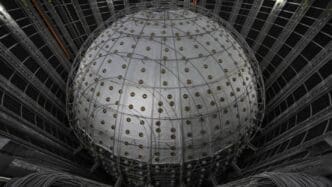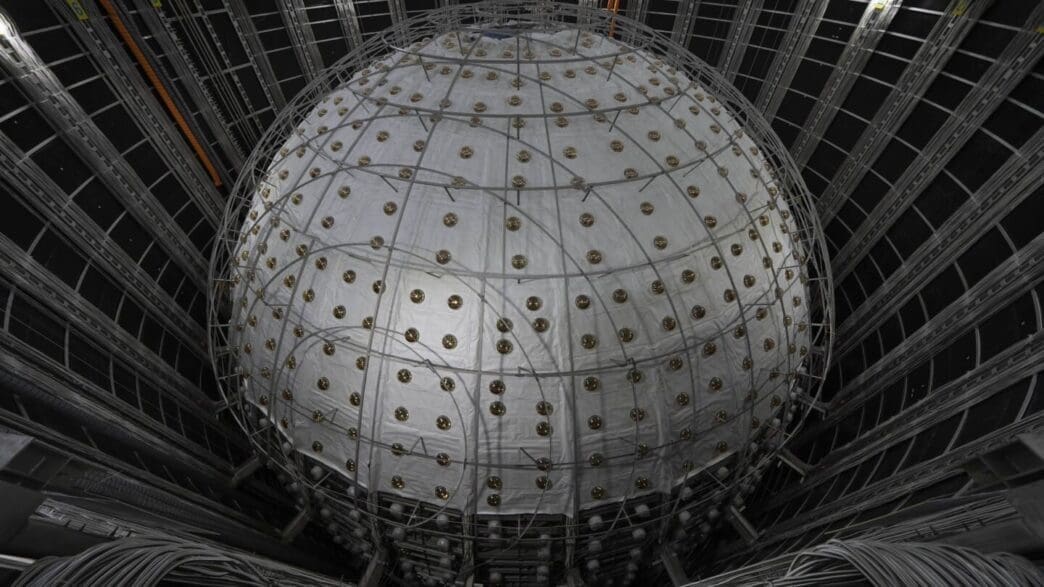Deep beneath a granite hill in southern China, scientists are nearing the completion of a groundbreaking facility. This isn’t your ordinary science project—it’s an ambitious attempt to capture the elusive neutrinos, often referred to as ghost particles. These mysterious entities have baffled scientists for decades, and the Jiangmen Underground Neutrino Observatory (JUNO) is set to give us the clearest picture yet.
Neutrinos are remarkable particles that have existed since the dawn of time, dating back to the Big Bang. Every second, trillions of these tiny entities pass through our bodies, emerging from stars like the sun and from high-energy collisions in particle accelerators. Despite being known for nearly a century, neutrinos remain one of the least understood particles in physics, as emphasized by Cao Jun, a manager at JUNO: ‘It’s the least understood particle in our world. That’s why we need to study it.’
Spotting these elusive neutrinos isn’t easy. They rarely interact with other particles, making them invisible under normal circumstances. The key is to observe the aftermath when they hit other matter, producing visible flashes or charged particles. To increase the chances of witnessing such collisions, scientists go big, building gigantic detectors hidden deep underground to shield them from cosmic rays and radiation.
The detector in China, which cost $300 million and took nine years to build, is located over 2,297 feet underground in Kaiping, Guangdong province. This ambitious project will soon be filled with a special liquid that emits light upon contact with neutrinos and will be submerged in purified water. Its primary mission is to study antineutrinos from nearby nuclear plants, helping scientists understand how neutrinos switch between their three forms, ranked from lightest to heaviest.
Wang Yifang, the chief scientist behind this project, expresses optimism about uncovering new insights into neutrinos and physics as a whole. Despite their fleeting nature, neutrinos are not just ghostly relics of the Big Bang; they might hold the key to some of the universe’s greatest mysteries. Among these is why our universe is made mostly of matter, with its opposite, antimatter, largely absent. While scientists are still piecing together this puzzle, they believe neutrinos played a role in shaping the fundamental laws of matter.
China’s efforts are part of a global race, with two other detectors under construction in Japan and the United States. They’re expected to go online by 2027 and 2031, respectively, providing a broader, cross-verified understanding of neutrinos. Meanwhile, the JUNO detector, set to begin operations in the latter half of next year, could soon revolutionize our comprehension of these ghostly particles.
In the quest to understand the universe, capturing neutrinos could offer critical insights. China’s underground observatory is poised to be a leader in this scientific adventure. By tackling the challenge head-on, scientists hope to unlock the secrets of these ghost particles, potentially rewriting our understanding of cosmic history.
Source: Apnews








